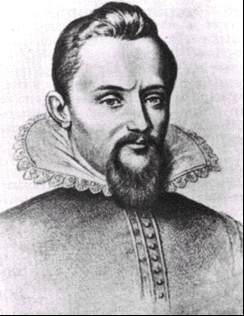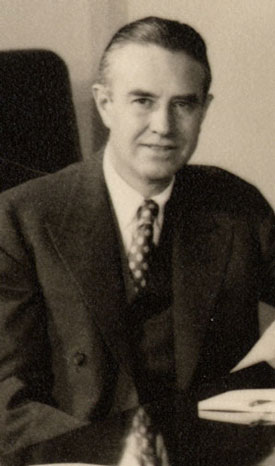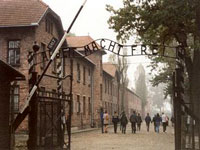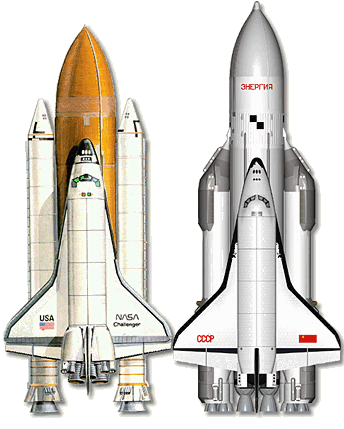
November 15

1280 Death: Albertus Magnus, German scholar, at 87.
1315 Battle of Morgarten: Swiss soldiers ambush and slaughter invading Austrians.
1397 Birth: Nicholas V, pope (1447-55), will end schism and found the Vatican Library.

1492 In Spain, 6 Jews and 5 Conversos are accused of using black magic.

1626 The Pilgrim Fathers, who had settled in New Plymouth, having lived in their American colony for six years, buy out their London investors for 1,800 pounds.


1660 Asser Levy, the first kosher butcher in the New World, is licensed in New Amsterdam.
1708 Birth: William Pitt the Elder, Prime Minister (Whig) of England (1756-61, 66-68), whose strategies will help win the Seven Years War. Will be known as the `Great Commoner.'

1777 US Revolutionary War: After 16 months of debate, the Continental Congress, sitting in its temporary capital of York, Pennsylvania, agrees to adopt the Articles of Confederation and Perpetual Union. In 1781, with the Revolutionary War still raging, the last of the 13 states will ratify the agreement. In 1777, Patriot leaders, stinging from British oppression, are reluctant to establish any form of government that might infringe on the right of individual states to govern their own affairs. The Articles of Confederation provide for only a loose federation of American states. Congress is a single house, with each state having one vote, and a president would be elected to chair the assembly. Although Congress does not have the right to levy taxes, it does have authority over foreign affairs and can regulate a national army and declare war and peace. Amendments to the Articles require approval from all 13 states. On 2 March 1781, following final ratification by the 13th state, the Articles of Confederation will become the law of the land. By 1786, defects in the Articles will be apparent, such as the lack of central authority over foreign and domestic commerce, and the United States will be in danger of breaking apart. In 1787, Congress endorsed a plan strongly suggested by George Washington to draft a new constitution that would establish a more centralized and effective government. On 4 March 1789, the modern United States will be established when the US Constitution formally replaces the Articles of Confederation. (Bradley)
1805 Meriwether Lewis, William Clark and their party reach the mouth of the Columbia River, completing their trek to the Pacific.



1881 The Federation of Organized Trades and Labor Unions of the United States and Canada is formed, in Pittsburgh, Pennsylvania. Five years later the organization will become the American Federation of Labor (AFL).
1882 Birth: Felix Frankfurter, in Vienna, Austria, US supreme court justice (1939-62).
1884 The Colonization of Africa organizes an international conference in Berlin.

1889 Brazil becomes a republic as Dom Pedro II, Emperor of Brazil, is deposed.



1901 Miller Reese of New York, patents the first hearing-aid. Unlike the hearing aids that we know today, this original is not portable.
1902 The German Workers Party (DAP) is first organized in the northern Bohemian city of Aussig (Usti nad Labein). (Unknown Nazis)
1904 The first razor with disposable blades is patented by King Camp Gillette.
1906 Birth: Curtis LeMay, general.

1907 Birth: Colonel Claus Schenk Graf von Stauffenburg, leader of the group of army officers who will attempt to assassinate Hitler and take over the German government on 20 July 1944.

1909 M. Metrot takes off in a Voisin biplane from Algiers, making the first manned flight in Africa.
1919 The US Senate invokes its first closure to end a filibuster (Versailles Treaty).

1922 It is announced that Dr. Alexis Carrel has identified white corpuscles.
1923 Rampant inflation in Germany reaches a peak when the Mark rises to 4,200,000,000 to the dollar.
1925 Birth: Howard Baker (Sen-R-Tennessee), presidential hopeful and chief of staff.
1932 The Walt Disney Art School is created.
1934 Church and Reich: Cardinal Faulhaber writes a letter to the World Jewish Congress protesting "the use of his name by a conference demanding the commercial boycott of Germany, that is, economic war." (Lewy)
1935 Holocaust: Germany publishes regulations to execute the Nuremberg Laws.

1936 The Romanian Ministry of Labor announces that Jewish refugees will not be allowed to establish themselves in Romania. (Edelheit)

1937 US Congress enjoys air conditioning in both the House and Senate chambers for the first time as the second session of the 75th US Congress convened.


1940 Holocaust: The Warsaw Ghetto officially comes into existence.


1943 Holocaust: Heinrich Himmler orders Gypsies and part-Gypsies to be placed in Nazi concentration camps.
1946 The 17th Paris Air Show opens at the Grand Palais des Champs-Elysees. It is the first show of this kind since WW2.
1948 William Lyon Mackenzie King retires as Prime Minister of Canada.
1954 The first regularly scheduled commercial flights over North Pole begin.
1957 Patriarch Ignatius Yacoub III officially establishes the Archdiocese of the Syrian Orthodox Church in the US and Canada. At the same time, Archbishop Mar Athanasius Yeshue Samuel, former Syrian Orthodox metropolitan of Jerusalem, is appointed primate of the new archdiocese, and soon after takes up residence in Hackensack, New Jersey.
1957 The US sentences Soviet spy Rudolf Ivanovich Abel to 30 years and $3,000.


1963 Argentina voids all foreign oil contracts.
1965 The Nam: In the second day of combat, regiments of the 1st Cavalry Division battled on Landing Zones X-Ray against North Vietnamese forces in the Ia drang Valley.

1967 Michael Adams in an X-15 reaches an altitude of 80km.
1968 The Queen Elizabeth, the largest passenger ship ever built, completes her final voyage.
1969 A quarter of a million anti-Vietnam War demonstrators march in Washington, DC.
1972 The small Astronomy Satellite Explorer 48 is launched to study gamma rays.
1976 A Syrian peace force takes control of Beirut, Lebanon.
1977 President Jimmy Carter welcomes the Shah of Iran.

1979 The British government identifies Sir Anthony Blunt as the fourth man in the Soviet spy ring that includes Guy Burgess, Donald Maclean and Kim Philby.
1980 Pope John Paul II begins a 5 day visit to West Germany; the first papal visit in 200 years.
1982 Funeral services are held in Moscow's Red Square for former Russian leader Leonid I. Brezhnev.
1983 The Equal Rights Amendment fails in the House.
1983 The Turkish Republic of Northern Cyprus is proclaimed.
1983 In the UK, Greenham Common women's group stages its first protest as cruise missiles arrive at the US airbase.
1985 Britain and Ireland sign an accord giving Dublin an official consultative role in governing Northern Ireland.
1986 Iran-Contra: A government tribunal in Nicaragua convicts American Eugene Hasenfus of charges related to his role in delivering arms to Contra rebels, and sentences him to 30 years in prison. He is pardoned a month later.

1990 The Keating Five: Senators Alan Cranston, D-California, Dennis DeConcini, D-Arizona, John Glenn, D-Ohio, John McCain, R-Arizona and Donald Riegle, D-Michigan, maintain their innocence at the opening of Senate hearings into charges of influence peddling on behalf of S&L kingpin Charles Keating.
1990 President George HW Bush signs the Clear Air Act of 1990.
1991 The Dow Jones average drops 120.31 points; its 5th largest dive.
1992 Newsweek quotes Elizabeth Tamposi saying a State Department colleague acting on behest of the White House had asked her to dig up information on then-Democratic presidential nominee Bill Clinton.
2001 Dispatches from the war on terrorism being waged in Afghanistan reveal that US Special Forces are taking part in combat operations against the Taliban and have had close scrapes with enemy fire.
2001 Six people are arrested in connection with terrorist attacks on the UK mainland, police declare.



2001 The commander of the US forces in Afghanistan, General Tommy Franks declares, "We are tightening the noose. It's a matter of time."

2001 Russian President Putin flies to New York and tours Ground Zero with NY Mayor Giuliani.

2001 Flight 587 investigators say the flight data recorder indicates the A300 jet had two "wake encounters" during the three-minute flight. The FAA prepared to order inspections for all Airbus A300s, focusing on the tail.
2001 United Airlines announces it will place Taser stun guns for their pilots in the cockpits of their 500 plane fleet.
2003

2004

2004

2004

2004

2004

Visit:




 Visit:
Visit:

Click Here to email the History: One Day At a Time webmaster.